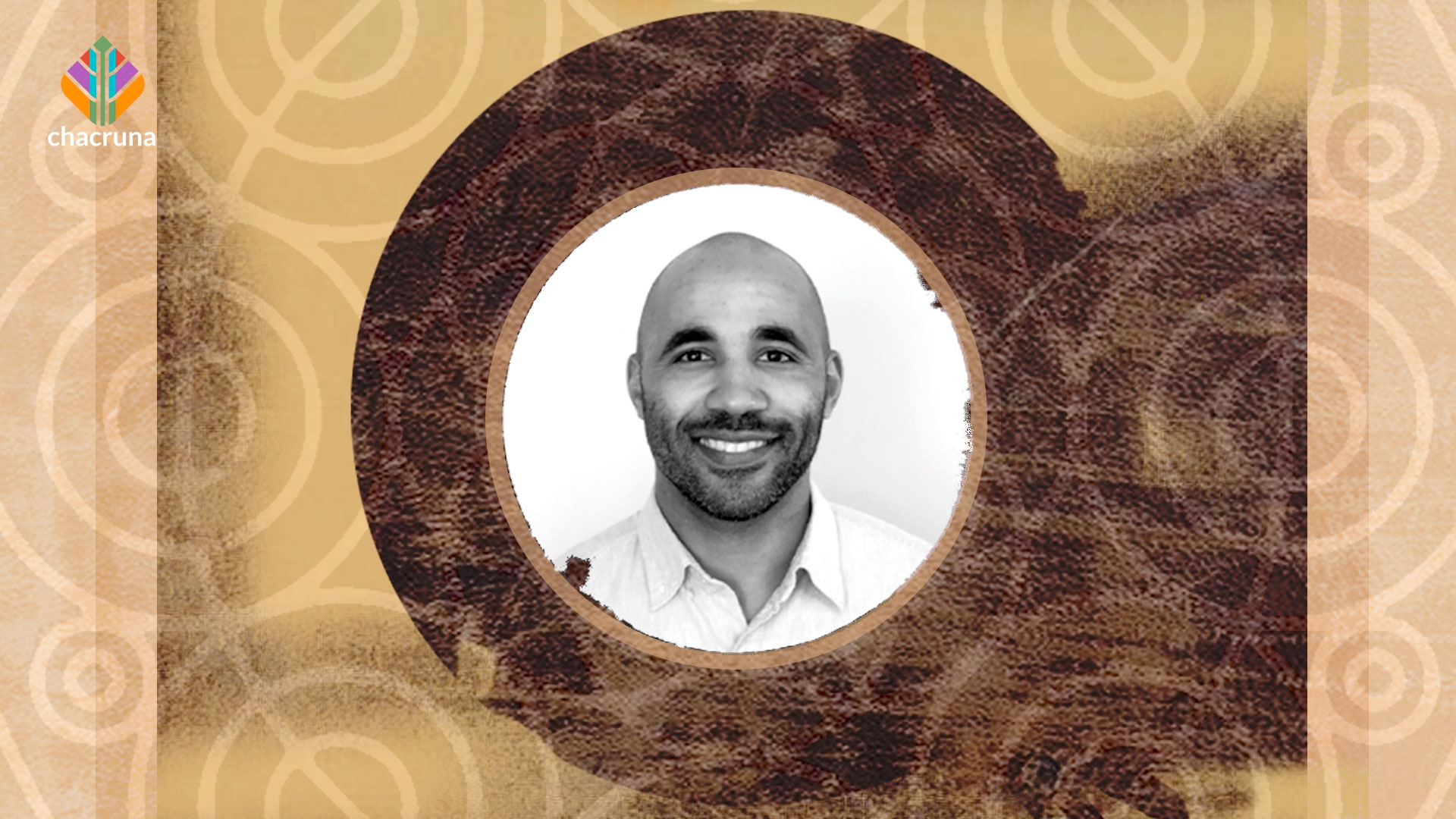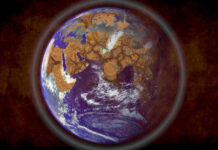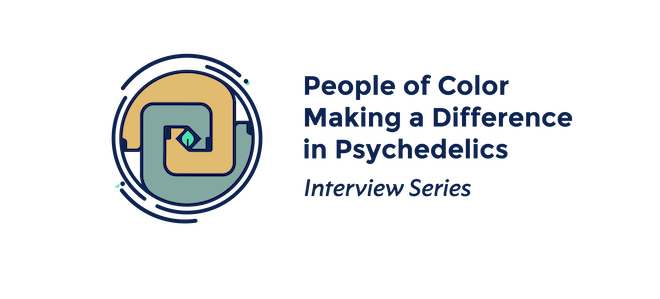
Joseph McCowan, Psy.D., licensed clinical psychologist and psychotherapist, wears many hats. He has spent the majority of the last decade working in nonprofit community mental health settings providing therapy to low-income folks living in subsidized housing, homeless shelters, or living on the street. He provides supervision to therapists aspiring to become licensed, and he recently spent a year volunteering with a charter school in South Los Angeles developing curriculum for high school students, mostly students of color, in a majority-minority neighborhood. Now, Joseph is working in Los Angeles as a co-therapist in the MAPS-sponsored Phase 3 clinical trials of MDMA-assisted psychotherapy for PTSD.
“In all the work I do,” Joseph said, “my intentions are toward supporting those who need supportthe most, and trying to connect treatment to those who have historically been underserved due to various systemic, socioeconomic, or sociocultural factors.”
In 2019, Joseph completed MAPS’ MDMA Therapy Training for Communities of Color. This training validated his dream of practicing psychedelic-assisted psychotherapy and deepened his passion for improving access to psychedelic therapy for people of color. He is currently working with other therapists and researchers toward that aim.
In this interview, Joseph McCowan casts light on the concept of intergenerational trauma, explains how it affects people of color, and shares how psychedelic therapy could provide a novel treatment for these inherited burdens. He shares anecdotes from his own healing journey and how he has come to a place in his career where his interests in psychology, sociology, history, and psychedelics are coming together. Finally, Joseph offers his perspective that, before the psychedelic field can become more inclusive and diverse, it must become more understanding of and curious about perspectives that lie outside the dominant narrative and makeconcerted efforts to put those perspectives at the center.
Sean Lawlor: Could you share a bit about your experience at MAPS’ MDMA training for therapists of color and the impact it had on you?
Joseph McCowan: That training was a life-changing experience. More than anything, it helped me become aware of the power of my own story, my own voice, and I arrived in a new vulnerability and a newfound courage to tell and share that story. Some of that came through justbeing with other folks of color who were deeply listening to one another and sharing openly theirstories and experiences, especially with intergenerational trauma or specific encounters with racism and working or living in oppressive environments or systems. I had done a good deal of inner work related to some of these things, but this brought it to a new level.
Beneath all of us is such a complex, rich history. We each carry deep wisdom about ourselves and our own experiences. We have vast knowledge about our own cultures, and we have this immense intergenerational wisdom from our ancestors and those who came before us. But we also carry a ton of intergenerational trauma, especially as descendants of ancestors who were oppressed and colonized.
People of color have unique challenges and unique perspectives, and, in a way, we needed a training that made room for this honest truth-telling, to share our perspectives and experiences in a space that felt safe.
People of color have unique challenges and unique perspectives, and, in a way, we needed a training that made room for this honest truth-telling, to share our perspectives and experiences in a space that felt safe. Often, that safety isn’t present in predominantly white spaces—I certainly know that that’s been the case for me. There, space often isn’t made for conversations around systemic racism or intergenerational trauma or racial trauma. They are overlooked or not even brought up—or people of color might not talk about them. Sometimes, they’re considered marginal issues, not of central importance. In this training, specifically, challenges facing people of color were front and center, and that was beyond validating. It was extremely empowering.
I had never felt so aligned, personally and professionally, in the way that I did at this training. Joining with other therapists, clinicians, doctors, healers, and looking at ways to bring these medicines to our communities and bring down barriers to access to these medicines was extremely fulfilling. Not only was it powerfully healing and educational, but very connecting, as I networked with many people that I’m still in a relationship with today, and I continue to have really powerful experiences with these folks.
It was kind of like a psychedelic journey. I left there changed, with a full heart, holding on to all of these experiences and relationships. And, like any psychedelic experience, integration continues to happen.
Psychedelics can help support us to connect more deeply with who we are as individuals and help us explore more deeply who we are in relation to one another and the world. The training was just that; placing things in perspective and bringing new clarity to the ways I might contribute as a therapist and researcher.
SL: Were you already focused on these issues in your clinical work before the MDMA training, and were you already interested in psychedelics?
JM: My interest in psychedelics goes back to my undergraduate years at UC Santa Barbara. I have my own experiences with racial trauma, and for years, I wasn’t necessarily aware of what exactly was happening or what it was. In my 20s, after working with a white therapist toward theend of high school who I didn’t feel seen or heard by, I had a really powerful experience with a Black therapist. What’s interesting is this was occurring simultaneously with some of my early psychedelic experiences, as well as some of my more traumatizing experiences with racism at this predominantly white institution. So, I was encountering direct and indirect racism, as well ashaving these early experiences with psychedelics, and I was encountering the benefits of finally finding someone that sees me and hears me in the therapeutic space. I was also pursuing a minor in Black studies, so I was very much interested in the impact of systems of oppression and the legacy of colonialism on communities of color.
It’s interestingly synergistic how this is all intersecting in my current work. I’m now a psychedelic therapist, exploring the potential to heal PTSD and other conditions and also lookingto do more research around how to support communities of color directly with these medicines.
So, it goes way back, but only recently has it all come together. Ultimately, that’s where my interests lie—at the intersections of psychedelics, therapy, and racial and intergenerational trauma.
It’s important that we’re not separating ourselves individually from the larger systems we’re a part of. It’s necessary to bring in that macro focus when we’re working with folks, because thoselarger systemic factors are influencing what they are experiencing.
It’s important that we’re not separating ourselves individually from the larger systems we’re a part of. It’s necessary to bring in that macro focus when we’re working with folks, because those larger systemic factors are influencing what they are experiencing.
SL: Can you explain your understanding of intergenerational trauma?
JM: It’s newer in the collective lexicon, but something folks of color have been dealing with for centuries. It’s trauma that spans generations. If we look at Indigenous populations who endured colonization, such as the Native Americans in the United States, there’s the direct traumatic experiences for those folks that comes with genocide and relocation and forced migration; but there’s also a legacy of these harms on families and communities and an entire culture. Currently, there are Native Americans and African Americans, just to name a couple of groups, who are carrying that trauma within their families and communities. There’s also an embodied stress that can be a part of one’s experience due to continuing to live under racist and oppressive systems.
The legacy and the harms of slavery and colonization continue to live on to this day within our bodies, as well as in the experiences we have within the larger systems and structures around us that continue to be traumatizing, even if it looks different than a whip to the back.
When you currently see folks of color who are disproportionately dying or out of work due to COVID-19, or disproportionately impacted by the War on Drugs, with higher incarceration rates,high unemployment, and really low opportunities in certain communities—the collective trauma of slavery didn’t just stop with the Emancipation Proclamation. The legacy and the harms of slavery and colonization continue to live on to this day within our bodies, as well as in the experiences we have within the larger systems and structures around us that continue to be traumatizing, even if it looks different than a whip to the back. It’s still a traumatic experience to live in fear of law enforcement or not being able to fully feel like one is connected to the greater American Dream.
A lot of oppression is internalized. There are messages from society saying that Black and brownvoices don’t matter, or Black and brown bodies are dangerous. That is internalized by Black and brown folks as well; then, there can be intergroup conflicts and harms through that internalized racism.
This is why it’s essential that these medicines are available and accessible to support the healing of people of color. If we’re supporting people towards healing now, we have the opportunity to slow the transmission of that trauma from one generation to another. These medicines can help people to fully connect with their authentic selves and engage with their history and cultures in ways they might not have experienced in the past.
Sign up to our Newsletter:
SL: A couple of things you said remind me of a sentence you wrote in your article for MAPS, that “oppression becomes stored in the body.” Could you elaborate on what that means?
JM: I’ll share a bit from my own experience. I was a very shy kid, but also, at the same time, a very anxious kid. I grew up in a predominantly white space. More than anything else, I found that this crippling tension and anxiety was fear. In most spaces, I felt like an outsider. I was very passive, not actively engaging. I had turned the messages from society about myself inward on myself, and in many spaces, I didn’t freely express myself. I wasn’t sharing my story, I wasn’t being open and honest, and I wasn’t challenging anything that I thought was wrong. To say I “hated myself” is too strong, but I very much wanted to be someone other than who I was. This tension, this constant stress activation, was debilitating.
From a young age, I was getting feedback from the environment that there was white privilege and it was not safe in some situations to be Black. I remember a camping trip with my dad when I was nine or ten years old—the same place we went every year—and looking around, I saw we were the only Black people in the whole place. I asked, “Why are we always the only Black people here?” Essentially, his response was, “Where my parents are from, in the south, Black people don’t feel safe exploring or going into the wilderness. People would end up harmed, dead,or lynched.” As a kid, it’s hard not to hear that and recognize, “Well, that could be me. I guess the world is safe for some, and potentially not for others.”
Spending time outdoors is now a place where I find peace, beauty, connection, and healing. However, for many people of color, due to the history of harms, they might not actively engage with certain practices that can support healing, or they see what could potentially be a safe space as a harmful space. This is very similar to what you see with the hesitation of people of color to have psychedelic experiences. Due to the War on Drugs and that harmful history, people of color are wary, and for good reason.
Not feeling safe or comfortable in various situations contributes to things like not expressing ourselves authentically, or avoiding, rather than moving into, a situation. So, there are many different ways that embodied oppression presents; but for me, I often felt tense and tiny, and would hide myself.
SL: Thinking about MDMA therapy for intergenerational and race-based trauma, and bearing what you’ve just shared in mind, how can this medicine and therapy help heal people?
JM: Psychedelics can help deepen our capacity to be with what’s difficult, and to connect more deeply with ourselves. People of color with conditions like depression or trauma might be able to view themselves through a lens of compassion; perhaps, for the first time. If we are able to see or process things in new ways, sometimes that alternate angle or shift in perspective can support us in finding new meanings in our lives and relationships, with each other, and with our world. Not only is this empowering, but it provides a foundation for transformational experiences.
For people of color with racial trauma, MDMA can provide the opportunity to be with that trauma in a new way: engaging with it, sitting with it, looking at it and feeling it. Just going from patterns of avoidance to acknowledgement and being with what is there provides a pathway to healing.
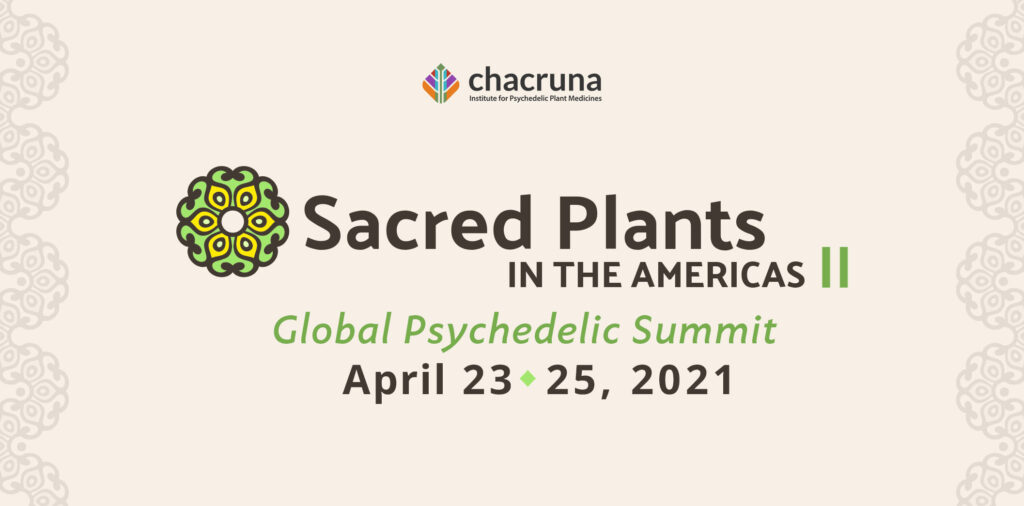
Join us at Sacred Plants in the Americas II
MDMA can help reduce our fear responses and help us move through our automatic avoidance behavior when encountering something difficult, challenging, or traumatic. For people of color with racial trauma, MDMA can provide the opportunity to be with that trauma in a new way: engaging with it, sitting with it, looking at it and feeling it. Just going from patterns of avoidance to acknowledgement and being with what is there provides a pathway to healing. And that’s not easy work. It’s tough to be with what is, and MDMA can help support that. And we always have to be mindful of the process of integration. It’s not just the medicine itself, it’s how we’re intentionally weaving the insights gained in our experiences into who we are and how we are newly engaging with the world.
SL: Do you encounter any common misperceptions around race-based trauma? What comes to mind for me is that folks often think of trauma as a specific event, whereas that doesn’t necessarily have to be the case.
JM: I really appreciate this question because, often, folks think that it requires a single, specific occurrence of explicit racism or direct harm for somebody to experience racial trauma. It can occur in so many different ways, and it’s actually happening all the time for people of color in many settings and situations over one’s life.
I was in Yosemite in July, and there’s a plaque in the valley remembering a certain location near a river where a Native American tribe once lived. Tears came to my eyes; firstly, because it was very much a whitewashed type of story; and also, due to reflecting on what those people endured during that period of forced removal from that beautiful place. It’s also experiences like that. It’s like when you see the section on slavery in your high school textbook, and it’s this pathetic 12-page chapter that really gets at nothing. That’s also impactful. There’s race-based trauma in getting singled out repeatedly by police, in seeing other people of color killed or incarcerated, and in moving through professions or careers and repeatedly being overlooked for positions or promotions. It’s when you’re not being asked about your perspective; or, when that perspective is shared, it’s completely unacknowledged. For many people of color, it’s a lifetime of emotional injury, experienced in a lot of ways, and it doesn’t always just look like explicit encounters with racism.
SL: You’re a therapist for MAPS’ Phase III trials. Something you touched on in your article is how overwhelmingly white psychedelic research has historically been. Do you see any change in that trend, or is it continuing right now?
JM: I think there’s a lot more awareness now around why things are the way they are and some of the challenges in moving forward. But, if we look beyond the individual to include history and what is happening at the societal level, it makes sense why there is currently a lack of therapists of color in the psychedelic space, as well as very few participants of color accessing these medicines. Psychedelics, mental health and research are all highly stigmatized in communities of color. You bring those three together, and it’s essentially a pot of stigma.
As we develop approaches moving forward, we need to come from a position of realizing it makes sense that communities who have historically been harmed in research settings—who have not felt seen or heard in mental health settings, or who were disproportionately impacted by the War on Drugs—aren’t lining up for this research or these treatments.
I think it’s also important to see things through the lens of safety. People of color desire to do what is safe prior to contributing to research or science, or even healing themselves. Right now, psychedelic spaces, due to their illegality and the stigma they carry, are not safe. Therapy is often not a safe space, especially under psychedelics, where there’s a new degree of vulnerability. Most people of color will just imagine, due to implicit bias, that the person they’re going to be meeting with is a white therapist. The next thought is going to be, “Will they understand my experiences, or hear me, or see me?” And they’re probably going to think, “No.” As we move forward, it’s really important that we are reorienting how we are working with individuals and communities of color. Supporting these communities requires us to move from the position of expert to the position of learner. It requires us to move from cultural competency to cultural humility, because we can’t assume that we can simply apply the current method, therapy, and protocols with people in communities who historically haven’t accessed these medicines, therapies, or studies. We need to look at how we might change the methods or protocols to be more culturally attuned or culturally sensitive, so that we’re able to meet the unique needs of people of color. We have a lot of work to do, that’s for sure.
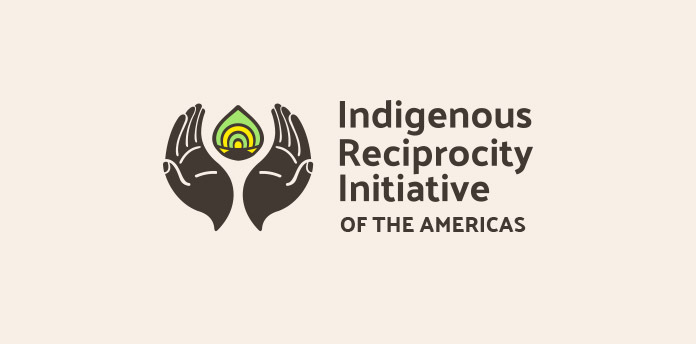
Discover Indigenous Reciprocity Iniciative of the Americas
SL: That segues into something you brought up earlier, about new visions and potential approaches to the psychedelic space. I wonder if you might touch on your thoughts there.
JM: The reality is, we are not culturally competent, and we really never can be, as individuals or organizations. Currently, we don’t know much about attitudes towards psychedelics for many people of color. It’s important that the individuals and communities we’re supporting are perceived as the experts. We need to really listen to people of color, to make space for more diverse perspectives, and start centering those voices, too. This will be critical in determining effective approaches for supporting people of color.
We need to really listen to people of color, to make space for more diverse perspectives, and start centering those voices, too. This will be critical in determining effective approaches for supporting people of color.
I think that’s happening more now. The wild whirlwind psychedelic year that 2020 has been; I think it’s also a year of healing and transformation. Like I shared earlier, psychedelics can help catalyze powerful, deep experiences that help get us to the essence of what’s there. If we are able to be with it, connect with it, and look at it in ways we hadn’t been able to before, healing can happen.
We see this happening at a collective level right now. As a society, we are being with and reflecting on what we have avoided. If we are talking about systemic racism or intergenerational trauma, and that currently being in the collective consciousness, we are moving beyond patterns of avoidance and looking at what is actually there and who we are as a society. As we arrive at the end of this year, in some ways, we are coming off of this disorienting and destabilizing, but also illuminating and grounding, year. We have a pandemic, we’ve been through this pivotal election, we’re reckoning with some of our country’s core wounds in slavery and systemic racism and colonization. This is not easy for people to see, but this is what’s surfacing. And we’re exploring it. We’re bringing more curiosity to it. As a collective, this can provide greater clarity, as well as healing and transformation. Now, as a collective, how can we integrate? How can we not lose the power in this experience, and bring the lessons learned this year into who we are? We can all keep it going through educating ourselves, continuing to look more closely, and being curious about parts of our society we’ve been neglecting or avoiding. Reflecting on ourselves differently, we’re also doing the individual work, and if we’re doing that deep inner work and committing to our personal transformation, we are going to help create the conditions for transformation to occur at the collective level as well.
SL: Do you have any last thoughts you would like to share here?
JM: While we’re researching the potential for psychedelics to help heal various conditions—depression, trauma, addiction—these are not individual challenges, but challenges occurring in larger sociocultural contexts and environments. Often, those environments and contexts are creating conditions where more people are actually experiencing trauma, depression or addiction.
I think, whoever we are or whatever position we hold, we have the power to reduce harm between one another, and the power to help build systems and communities and support policies that leave people less traumatized. We have the ability to be in relationship with one another in ways that orient toward healing versus harm. A ton of harm is occurring just due to our inaction. If we do nothing about systemic racism, things remain as they are, and people, especially communities of color, continue to be disproportionately impacted. I believe in the innate strength and power we each hold as human beings. Collectively, working together, everything is possible. Psychedelics can help support our healing, but we must also help heal each other. Let’s connect to that immense power we each hold and really activate that to transform society.
Art by Mariom Luna.
Take a minute to browse our stock:
Did you enjoy reading this article?
Please support Chacruna's work by donating to us. We are an independent organization and we offer free education and advocacy for psychedelic plant medicines. We are a team of dedicated volunteers!
Can you help Chacruna advance cultural understanding around these substances?


